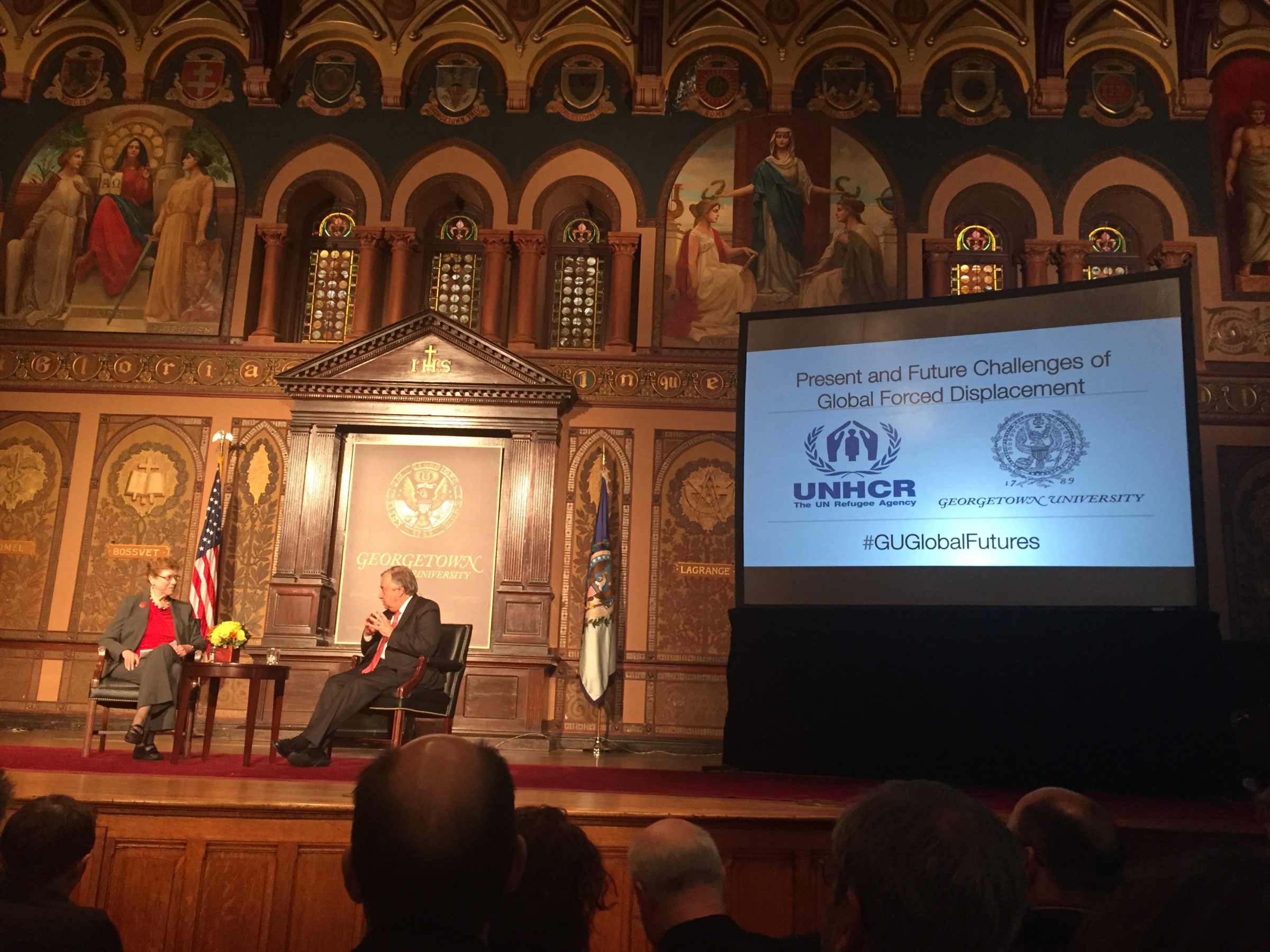UN High Commissioner for Refugees and former Prime Minister of Portugal António Guterres addressed Gaston Hall on Oct. 28 to deliver a lecture on “Present and Future Challenges of Global Forced Displacement.” Guterres first addressed the public and then maintained a dialogue with Dr. Susan Martin, who leads Georgetown’s refugee and humanitarian assistance certificate program.
Guterres’ opening remarks focused on the growing inequalities that can be attributed to globalization, the existence of global markets, and embracing the need for global governance to address issues of migration.
“Globalization is asymmetric,” he said, offering that the difficulties people face when trying to move from one place to another accentuate this asymmetric development. “Money moves freely … goods and services do not move entirely freely, but they move quite easily. People face a lot of obstacles, and yet, as there is a global financial market, there is increasingly a global labor market,” said Guterres. He also stressed that it’s possible to influence and regulate markets, but it is unwise to ignore them and impossible to go against them.
He referred to migrations of people as a market of its one. “As in all markets offer and demand tend to meet, legally if possible, irregularly if necessary … when laws don’t let offer and demand meet, smugglers will do the job.” Guterres noted that this could lead to an increase in migratory patterns, met with more and more restrictions.
“There has been an acceptance for the need of global governance for global markets … but there’s been a rejection at any attempt for a global government system of migration. Migration has always been perceived as an intergovernmental issue and never as a multilateral issue.”
Additionally, Guterres pointed out that the issue of forced displacement is paradoxical.
“Exactly in the moment in which a lot of obstacles are imposed on the way people move, we find more and more people in fact forced to move … we see a decrease in support [for these people].” Statistics shown in an introductory video pointed to 59.5 million people being forcibly displaced in 2014, 13.9 million of these being newly displaced, and 11 million internally displaced. 42,500 people flee from their homes every day, comparable to a small city.
To address the problem, Guterres claimed that societies, countries, and international organizations must learn to deal with this issue globally. He stated that he is strongly in favor of creating an international organization for migration that should join the UN, and he challenged the audience to support this cause.
“I invite you to join efforts with other areas of civil society and academia … trying to push in the direction that I believe is the right direction: to move towards a system of global governance with global labor markets, allowing for migration to be respected.”
Guterres also addressed the issue of refugees who are not displaced by issues of conflict. He explained that a large percentage of the world’s displaced peoples today are forced to move due to issues such as climate change. Since they are legally considered immigrants and not refugees, host countries provide them with significantly less support.
Guterres concluded noting that we face the need to believe in tolerance, describing diversity as an element of richness and strength. He described a generational gap in values as it relates to the forced displacement crisis. “You see old generations very much concerned with false identify problems, and you see new generations much more governed by cosmopolitan values,” he said. “To me, these are better values that we have now, and it’s something that each person should to get involved with the world.”






